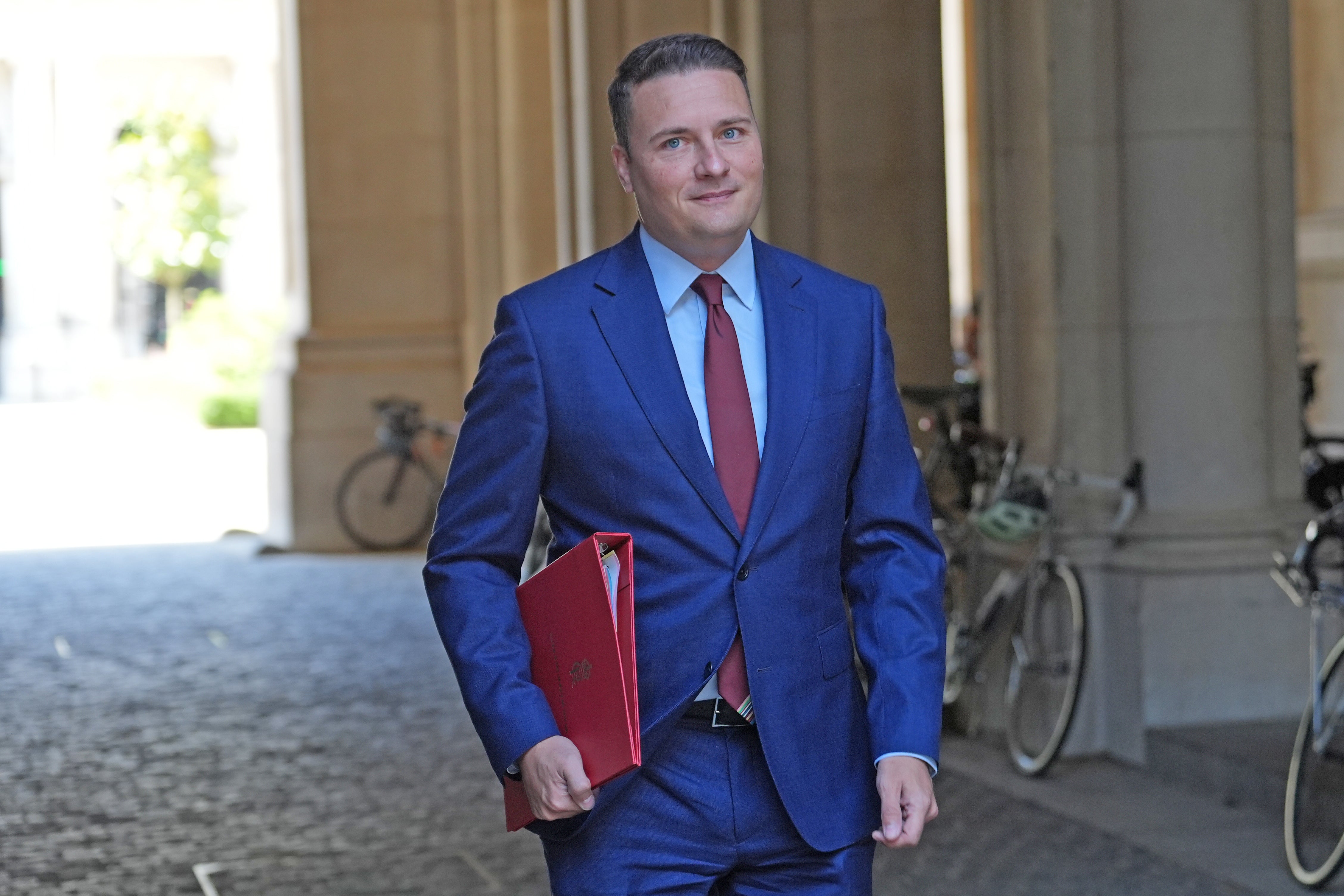Doctors are set for crunch talks with the government on Thursday to halt strike action.
Resident doctors are willing to “discuss all options” in the talks to prevent the five-day walkout due to start next week, the co-chair of the Resident Doctors Committee (RDC) has said.
The RDC – part of the British Medical Association (BMA) – is meeting with Health Secretary Wes Streeting on Thursday afternoon.
Discussions could be tense after Mr Streeting told MPs on Monday that he did not see a “reasonable trade union partner” in the RDC “at this time”.
The Cabinet minister has insisted the government will not budge on pay, but said discussions could focus on improving working lives of resident doctors.

RDC co-chairs were asked if they would accept an offer on working conditions as they arrived for talks at Portcullis House shortly before 3pm.
Dr Melissa Ryan told reporters: “We’re willing to be here and discuss all options with Mr Streeting, we’re very flexible – we’re just interested to hear what he has to say.”
It was put to the RDC co-chairs that the public was “broadly on-side” for the previous round of strikes but support is now “waning”.
Dr Ryan responded: “I think that the public is behind us in the sense that they want to see doctors paid fairly, they want doctors to be in the NHS, doctors retained, because ultimately they want good care and that’s what we’re here to talk to Wes Streeting about today.”
Dr Ryan’s co-chair Dr Ross Nieuwoudt said: “We’re hopeful and we’re confident that Wes Streeting is going to come to us with a credible offer to avert these strikes, that’s what we’re here for today, that’s what we’re looking to achieve.
“So now it’s up to him, the ball’s in his court, we’re here to talk – hopefully those conversations will go somewhere.”
On Tuesday, NHS leaders said there was no extra money to cover industrial action by resident doctors, formerly known as junior doctors.
The last round of strikes, which also included walkouts by other health workers, came at an estimated cost of £1.5 billion to the NHS in England.

Some 1.5 million appointments, procedures and operations were postponed as a result of the stoppages.
On Thursday, The Times reported that it had seen an audit which found that five patients died as a result of disruption linked to strikes by junior doctors in 2023 and 2024.
One prevention of future death report detailed how 71-year-old Daphne Austin, who had a kidney injury, died after getting “no medical input” on one of the strike days because the consultant who was covering was in charge of 25 patients.
Another states that 60-year-old John Doyle died of “natural causes against a background of missed opportunities to diagnose and treat cytomegalovirus infection, together with the impact of the resident (formerly junior) doctors’ strike on the provision of consistent patient care”.
The strikes ended last September when resident doctor members voted to accept a government pay deal worth 22.3 per cent on average over two years.
The 2025/26 pay deal saw resident doctors given a four per cent increase plus £750 “on a consolidated basis”, working out as an average rise of 5.4 per cent.
Government officials said these two increases equate to a 28.9 per cent pay rise.
But the BMA said resident doctors need 29.2 per cent to reverse “pay erosion” since 2008/09.
Earlier this month, the union announced that resident doctors in England would strike for five days from 7am on July 25.
Government ‘has very small window to avert resident doctors’ strike’
Notting Hill Carnival boss – ‘We can’t ignore impact of knife crime on our event’
Scotland will be at ‘forefront of UK’s technological revolution’, says Murray
Police face ban from marching in Pride parades after High Court ruling
MP Diane Abbott suspended from Labour Party over comments about racism
Coach carrying dozens of school children crashes in Somerset







